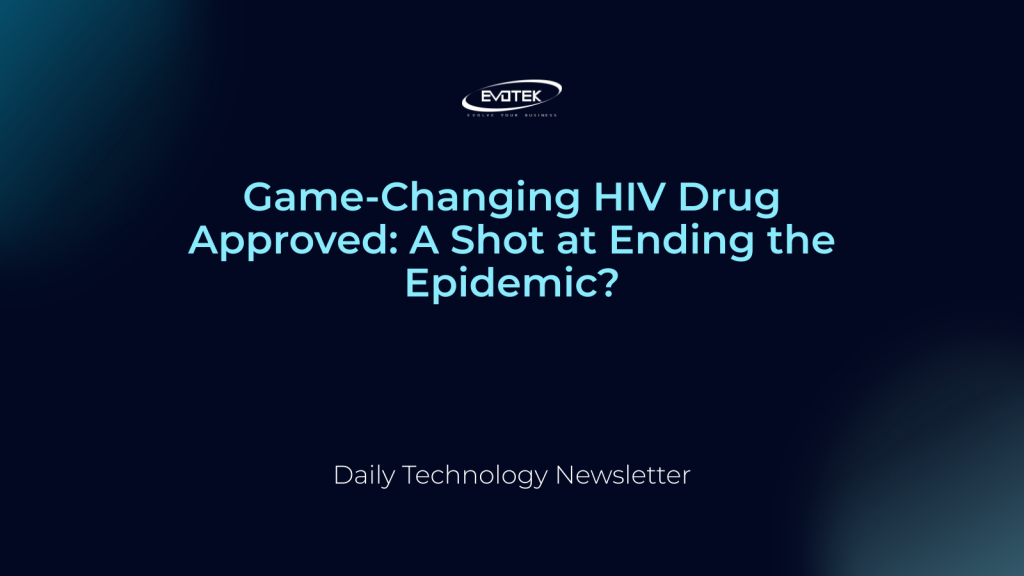The FDA has greenlit Yeztugo, a powerful new HIV prevention drug administered just twice a year. Clinical trials showed it nearly eliminated HIV transmission, offering hope for a faster decline in new infections.
A Potential Revolution in HIV Prevention
Experts are hailing Yeztugo (lenacapavir) as a major breakthrough. Unlike daily pills, this injectable medication significantly improves adherence, a key challenge in HIV prevention. “This is the single best opportunity in 44 years of HIV prevention,” claims Mitchell Warren, executive director of AVAC.
Gilead Sciences, the drug’s manufacturer, believes Yeztugo could potentially “end the HIV epidemic once and for all.”
Impressive Trial Results
Clinical trials pitted Yeztugo against daily Truvada (PrEP). Among gay and bisexual men and transgender individuals, Yeztugo showed an 89% lower HIV rate. A trial with cisgender women in sub-Saharan Africa reported zero HIV infections in the Yeztugo group.
Lenacapavir, the drug’s generic name, represents a novel class of antiretrovirals, blocking HIV from infecting immune cells. It was previously approved as Sunleca in 2022 for drug-resistant HIV strains.
Political and Economic Hurdles
Despite its promise, Yeztugo faces challenges. Concerns exist that budget cuts to HIV prevention programs could limit its reach. The annual cost of $14,109 per injection ($2,352 per month) also raises concerns about accessibility.
Insurance coverage is uncertain. Insurers might favor cheaper alternatives like generic Truvada. A Supreme Court decision on the Affordable Care Act could further complicate coverage for preventive medications like PrEP.
PrEP’s Uneven Success
Existing PrEP drugs like Truvada and Descovy have seen mixed success. While popular among white gay and bisexual men, usage remains low among Black and Latino gay men, who face disproportionately higher HIV rates. Adherence to daily pill regimens is also a challenge.
Apretude, another injectable PrEP, requires clinic visits every two months and has had limited uptake.
Will Yeztugo Deliver?
Yeztugo’s twice-yearly administration addresses adherence issues and reduces clinic visits. However, questions remain about ensuring consistent access and affordability, especially for vulnerable populations.
Dr. Susanne Doblecki-Lewis emphasizes the need for easy and low-cost access to mitigate racial disparities. Barriers like complicated authorizations and high copays could worsen existing inequalities.
Gilead’s Commitment and Access Initiatives
Gilead is engaging with insurers to secure coverage for lenacapavir. They offer up to $7,200 annually in out-of-pocket cost assistance for insured individuals and provide the drug free to low-income, uninsured people.
Companies like Mistr are also preparing to offer Yeztugo through their storefronts and community-based clinic networks, aiming to expand access to the medication.
Source: Benjamin Ryan, NBC News

 日本語
日本語 한국어
한국어 Tiếng Việt
Tiếng Việt 简体中文
简体中文